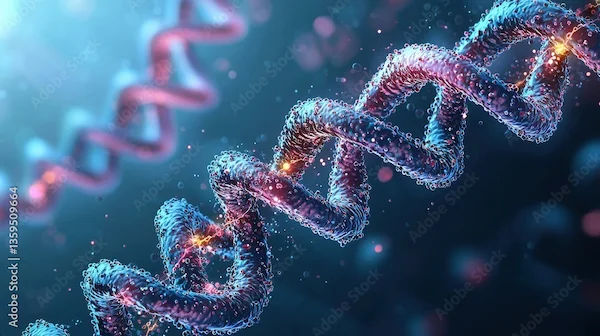Vitamins: Deficiencies and Health Impact
Vitamin deficiencies can lead to fatigue, weak immunity, and other health issues. Learn the causes, symptoms, and prevention tips for common vitamin deficiencies.

Written by Dr. Rohinipriyanka Pondugula
Reviewed by Dr. Vasanthasree Nair MBBS
Last updated on 3rd Aug, 2025

Introduction
Vitamins are essential nutrients that our bodies need in small amounts to function properly. They play a crucial role in growth, immunity, energy production, and overall well-being. However, when we don’t get enough of these vital nutrients, it can lead to deficiencies that affect our health in various ways.
This article will help you understand the importance of vitamins, common deficiencies, their symptoms, and how to maintain a balanced intake for better health.
Why Are Vitamins Important?
Vitamins are divided into two main categories:
1. Water-soluble vitamins – These include Vitamin C and B-complex vitamins (B1, B2, B3, B5, B6, B7, B9, B12). Since they dissolve in water, they are not stored in the body and need to be replenished regularly through diet.
2. Fat-soluble vitamins – These include Vitamins A, D, E, and K. They are stored in the body’s fat tissues and liver, so excessive intake can sometimes lead to toxicity.
Each vitamin has a unique role, such as:
Supporting immunity (Vitamin C, D)
Aiding in energy production (B vitamins)
Maintaining healthy skin and vision (Vitamin A)
Strengthening bones (Vitamin D, K)
Protecting cells from damage (Vitamin E)
When we lack these vitamins, our bodies show signs of deficiency, which can lead to serious health problems if left untreated.
Common Vitamin Deficiencies and Their Symptoms
These are the common vitamin deficiencies and their symptoms:
1. Vitamin D Deficiency
Why it happens: Limited sun exposure, poor diet (lack of fatty fish, eggs, fortified foods).
Symptoms:
Fatigue and muscle weakness
Bone pain or frequent fractures
Low immunity (getting sick often)
Mood changes (depression, anxiety)
How to improve:
Spend 10–15 minutes in sunlight daily.
Eat foods like salmon, egg yolks, and fortified milk.
Consider supplements if prescribed by a doctor.
2. Vitamin B12 Deficiency
Why it happens: Common in vegetarians/vegans (since B12 is mainly found in animal products) or due to poor absorption (as in pernicious anemia).
Symptoms:
Extreme tiredness
Numbness or tingling in hands/feet
Memory problems
Pale skin (anemia)
How to improve:
Include eggs, dairy, meat, or fortified cereals.
B12 supplements or injections may be needed for severe deficiency.
3. Vitamin C Deficiency (Scurvy)
Why it happens: Lack of fresh fruits and vegetables.
Symptoms:
Bleeding gums and slow wound healing
Dry, rough skin
Weak immunity (frequent infections)
How to improve:
Eat citrus fruits (oranges, lemons), strawberries, bell peppers, and broccoli.
Consult Top Specialists for Personalised Tips
4. Vitamin A Deficiency
Why it happens: Poor intake of carrots, sweet potatoes, leafy greens, or liver.
Symptoms:
Night blindness (difficulty seeing in low light)
Dry eyes and skin
Frequent infections
How to improve:
Consume carrots, spinach, sweet potatoes, and dairy products.
5. Iron + Vitamin B9 (Folate) Deficiency (Anemia)
Why it happens: Low intake of leafy greens, beans, or meat; common in pregnant women.
Symptoms:
Extreme fatigue
Pale skin and dizziness
Shortness of breath
How to improve:
Eat spinach, lentils, nuts, and fortified grains.
Iron and folate supplements may be needed.
Who Is at Risk of Vitamin Deficiencies?
Certain groups are more prone to deficiencies:
Elderly people – Poor absorption of vitamins like B12 and D.
Pregnant women – Need extra folate, iron, and vitamin D.
Vegans/vegetarians – Risk of B12 deficiency.
People with digestive disorders (like celiac disease) – Poor nutrient absorption.
Those with limited sun exposure – Higher risk of vitamin D deficiency.
How to Prevent Vitamin Deficiencies?
1. Eat a Balanced Diet
Include a variety of:
Fruits & vegetables (for Vitamin C, A, folate)
Whole grains & nuts (for B vitamins)
Dairy, eggs, fish (for B12, D)
Fortified foods (like cereals and plant-based milk)
2. Get Sunlight for Vitamin D
Just 10–15 minutes of sun exposure a few times a week helps.
3. Consider Supplements (If Needed)
Always consult a doctor before taking supplements, especially fat-soluble vitamins (A, D, E, K), as excess can be harmful.
4. Regular Health Check-ups
If you experience persistent symptoms like fatigue, weakness, or frequent illnesses, get tested for deficiencies.
When to See a Doctor?
If you notice ongoing symptoms like:
Constant tiredness
Unexplained muscle pain
Frequent infections
Poor wound healing
Vision problems
A simple blood test can check your vitamin levels. If needed, your doctor may recommend dietary changes or supplements.
Conclusion
Vitamins are tiny but mighty nutrients that keep our bodies running smoothly. Eating a varied, nutrient-rich diet is the best way to prevent deficiencies. However, if you suspect a deficiency, don’t ignore the signs—early detection and treatment can make a big difference in your health.
If you’re concerned about your vitamin levels, consider booking a consultation with a doctor or scheduling a blood test through Apollo 24|7 for a quick and easy check-up.
Consult Top Specialists
Consult Top Specialists for Personalised Tips

Dr. Mohamed Azeem
General Physician/ Internal Medicine Specialist
2 Years • MBBS,MD(Internal Medicine) CCEBDM
Karaikudi
Apollo Hospitals Karaikudi, Karaikudi

Dr. Sandhya Chandel
General Physician/ Internal Medicine Specialist
16 Years • MBBS, MD (Int. Med.), IDCCM
Bilaspur
Apollo Hospitals Seepat Road, Bilaspur
(125+ Patients)

Dr Aakash Andgi
General Physician/ Internal Medicine Specialist
9 Years • MBBS MD
Bengaluru
Apollo Clinic, JP nagar, Bengaluru

Dr Syed Mateen Pasha
General Physician
2 Years • MBBS
Bengaluru
PRESTIGE SHANTHINIKETAN - SOCIETY CLINIC, Bengaluru

Dr. Harshendra Jaiswal
General Physician/ Internal Medicine Specialist
12 Years • MBBS , MD (General medicine)
Kolkata
108 DHANA DHANVANTARI Clinic, Kolkata
(25+ Patients)
Consult Top Specialists

Dr. Mohamed Azeem
General Physician/ Internal Medicine Specialist
2 Years • MBBS,MD(Internal Medicine) CCEBDM
Karaikudi
Apollo Hospitals Karaikudi, Karaikudi

Dr. Sandhya Chandel
General Physician/ Internal Medicine Specialist
16 Years • MBBS, MD (Int. Med.), IDCCM
Bilaspur
Apollo Hospitals Seepat Road, Bilaspur
(125+ Patients)

Dr Aakash Andgi
General Physician/ Internal Medicine Specialist
9 Years • MBBS MD
Bengaluru
Apollo Clinic, JP nagar, Bengaluru

Dr Syed Mateen Pasha
General Physician
2 Years • MBBS
Bengaluru
PRESTIGE SHANTHINIKETAN - SOCIETY CLINIC, Bengaluru

Dr. Harshendra Jaiswal
General Physician/ Internal Medicine Specialist
12 Years • MBBS , MD (General medicine)
Kolkata
108 DHANA DHANVANTARI Clinic, Kolkata
(25+ Patients)




